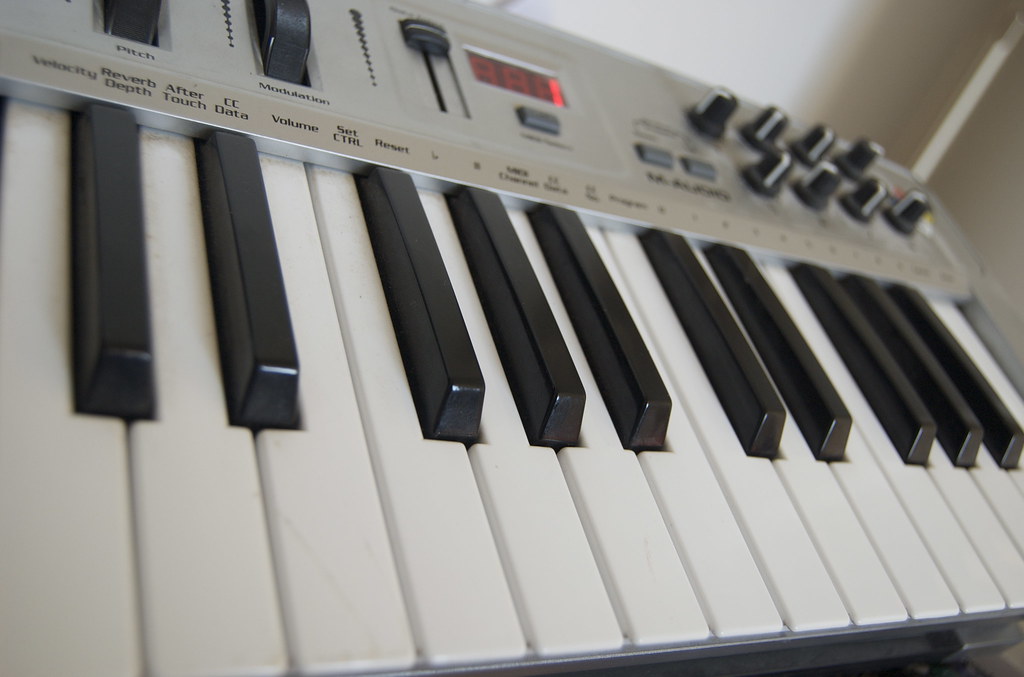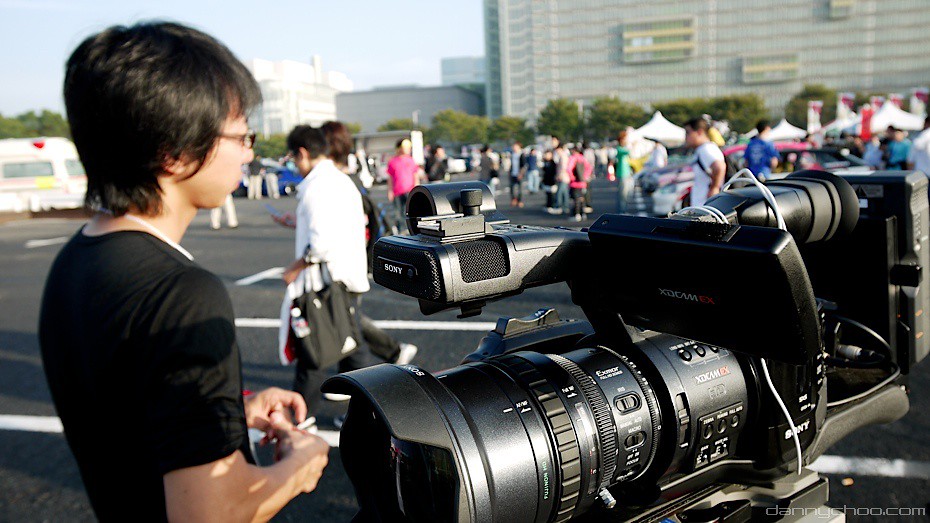Are you tired of using bulky keyboards for your music production projects? Look no further than the mini keyboard for music production! These compact keyboards are essential tools for music producers who are always on the move and looking for the perfect sound. In this comprehensive guide, we’ll take you through everything you need to know about mini keyboards for music production, including their top features, the best models on the market, and how to use them to take your music production skills to the next level.
Table of Contents

Mini Keyboard for Music Production: An Introduction
Mini keyboards for music production are compact versions of traditional keyboards. These keyboards have a smaller footprint and fewer keys than traditional keyboards, making them ideal for use in small studios or while traveling. Despite their size, mini keyboards are packed with features that make them perfect for music production, including velocity-sensitive keys, drum pads, and knobs for controlling various parameters. In this guide, we’ll take a closer look at mini keyboards for music production and help you choose the best one for your needs.

The Importance of Mini Keyboards for Music Production
Mini keyboards play a crucial role in music production for several reasons. Firstly, their compact size and lightweight design make them highly portable, ideal for musicians who need to work on the go. They can easily be packed in a backpack or travel case and taken to gigs, recording sessions, or rehearsals, without compromising on functionality.
Secondly, mini keyboards are often less expensive than their full-sized counterparts. This makes them an excellent option for beginner producers or those on a tight budget who still want to have access to a keyboard for their music production needs. Despite being more affordable, mini keyboards are equipped with features that are similar to their full-sized counterparts, which means they are still capable of producing high-quality sounds.
Finally, mini keyboards are often designed with features specifically tailored for music production. They come with a variety of built-in features such as drum pads, knobs, and faders, which can help you create unique sounds and effects that you might not be able to achieve with a traditional keyboard. These features allow you to experiment with different soundscapes and create music that is truly unique to your style.
The Importance of Hands-On Experience in Choosing a Mini Keyboard for Music Production
Choosing the best mini keyboard for music production can be a daunting task, but getting hands-on experience with different keyboards is essential to making an informed decision. By hearing from those who have firsthand experience with these keyboards, you can gain valuable insights into their practical applications and how they can be used effectively in your music production workflow.
One way to gain this experience is by attending music production workshops or events where mini keyboards are used. By watching and listening to experienced music producers as they use mini keyboards in their own music productions, you can learn new techniques for incorporating them into your own workflow.
Another effective way to gain firsthand experience is by trying out different mini keyboards for yourself. Many music stores offer demo models of mini keyboards that you can try out in person before making a purchase. This can give you an idea of how the keyboard feels and responds to your playing style, as well as how it integrates with your existing music production setup.
Insider Tip: When trying out different mini keyboards, pay attention to the key count, key action, size and weight, connectivity, and software compatibility, as these are all important factors to consider when making your decision.
Top Features to Consider When Choosing a Mini Keyboard for Music Production
When looking for a mini keyboard for music production, it’s important to consider several key features that will impact your workflow. Here are some of the features you should take into account:
Key Count
The number of keys on a mini keyboard can vary from as few as 25 to as many as 61. The key count is a crucial consideration that depends on your personal preference and the music you produce. If you’re a pianist, you might prefer a keyboard with more keys. However, if you’re looking for a portable keyboard, you might prefer one with fewer keys.
Key Action
The key action on a mini keyboard determines how the keys feel when you press them. Weighted keys mimic the feel of a traditional piano, while lighter keys offer a more responsive feel that’s ideal for electronic music production. Choose the key action that best suits your playing style and preferences.
Size and Weight
Mini keyboards are designed to be portable, but the size and weight can vary significantly. Some models are small enough to fit in a backpack, while others are larger and require a separate carrying case. Consider how you’ll be using the keyboard and choose a size and weight that’s appropriate for your needs.
Connectivity
Most mini keyboards connect to your computer or other music production equipment via USB. However, some models also have MIDI and Bluetooth connectivity options. Make sure the keyboard you choose has the connectivity options you need for your specific setup.
Sensor Type
The type of sensor used in the keys of a mini keyboard can have a significant impact on its performance and feel. Velocity-sensitive keys respond to the speed and force of your playing. Aftertouch sensors respond to the pressure you apply after the key has been pressed. Choose the sensor type that works best for your playing style.
Polyphony
Polyphony refers to the number of voices or notes that can be played simultaneously on a keyboard. A higher polyphony count can be useful for creating complex arrangements or layering multiple sounds. However, if you’re a beginner or only produce simple music, a lower polyphony count might be sufficient.
Octave Shift
Octave shift allows you to shift the keyboard up or down by an octave or more, giving you access to a wider range of notes and sounds. This can be particularly useful when you’re looking for a specific sound or creating complex arrangements.
Pitch Bend and Modulation Wheels
Pitch bend and modulation wheels give you more control over the pitch and tone of your sounds. These can be useful for creating expressive, dynamic performances. When choosing a mini keyboard, look for one with pitch bend and modulation wheels that suit your playing style.
Software Compatibility
Finally, make sure the mini keyboard you choose is compatible with the software you use for music production. Many keyboards come with software that’s specifically designed to work with them, but you’ll want to make sure it’s compatible with your preferred DAW (digital audio workstation) as well. Make sure to do your research before making a purchase to ensure the keyboard you choose is compatible with your preferred music production tools.

Top 5 Mini Keyboards for Music Production
After considering the important features of mini keyboards for music production, it’s now time to look at the top 5 mini keyboards available in the market today. These keyboards come with a wide range of features, from velocity-sensitive keys to backlit drum pads, and are compatible with popular music production software.
1. Akai Professional MPK Mini MKII
The Akai Professional MPK Mini MKII is a top-rated mini keyboard among music producers. It features 25 velocity-sensitive keys, 8 backlit drum pads, and 8 knobs for controlling various parameters. This keyboard also includes a variety of software, such as Akai Pro MPC Essentials, Ableton Live Lite, and SONiVOX Wobble, making it a great value for its price.
2. Novation Launchkey Mini MK3
Another popular mini keyboard for music production is the Novation Launchkey Mini MK3. This keyboard boasts 25 velocity-sensitive keys, 8 RGB backlit pads, and 8 knobs for controlling various parameters. Its software package includes Ableton Live Lite, Novation Bass Station, and Novation V-Station, making it a versatile tool for music production.
3. Arturia MiniLab MKII
The Arturia MiniLab MKII is a compact and versatile mini keyboard that offers 25 velocity-sensitive keys, 8 backlit pads, and 16 rotary encoders. It also includes a variety of software, such as Analog Lab Lite and Ableton Live Lite. With its intuitive interface and portable design, the MiniLab MKII is a popular choice for on-the-go music production.
4. M-Audio Oxygen 25 MKIV
The M-Audio Oxygen 25 MKIV is a budget-friendly mini keyboard option with 25 velocity-sensitive keys, 8 backlit pads, and 8 knobs for controlling various parameters. This keyboard also includes a variety of software, such as Ableton Live Lite and SONiVOX Twist, making it an affordable and feature-packed tool for music production.
5. Korg microKEY2
The Korg microKEY2 is a simple and affordable mini keyboard with 25 velocity-sensitive keys and a compact design that makes it easy to take on the go. It also includes a variety of software, such as KORG Module LE and KORG Gadget 2 LE. Though it lacks some of the advanced features of other mini keyboards, the microKEY2 is a great option for beginners or anyone looking for a portable and affordable mini keyboard.

Practical Applications of Mini Keyboards
Mini keyboards are incredibly versatile and can be used in a variety of ways to enhance your music production projects. Here are some examples of how mini keyboards have been used in actual music production projects:
1. Creating Unique Sounds and Effects
Mini keyboards are perfect for creating unique sounds and effects that might not be possible with a traditional keyboard. For instance, you can use the drum pads and knobs on a mini keyboard to create complex rhythms and textures that add depth and complexity to your music. With a mini keyboard, you can explore new sonic possibilities and add a fresh dimension to your tracks.
2. Triggering Samples and Loops
Mini keyboards are also great for triggering samples and loops in your music production software. By assigning samples to the drum pads or keys on your mini keyboard, you can easily trigger them during your performance or recording. This enables you to produce dynamic and engaging tracks without having to manually trigger samples on your computer.
3. Controlling Various Parameters
Mini keyboards often come with knobs and other controls that allow you to manipulate various parameters in your music production software. For instance, you can use the knobs to adjust the volume, filter cutoff, and resonance of your sounds, giving you more control over the overall tone and texture of your music. With a mini keyboard, you can shape your sounds in real-time and produce complex and nuanced tracks.
By exploring the practical applications of mini keyboards in music production, you can unleash new creative possibilities and take your music to the next level.

Top Tips for Choosing the Best Mini Keyboard for Your Music Production Needs
Choosing the best mini keyboard for your music production needs can be a daunting task. Here are some insider tips to help you find the perfect one:
1. Try Before You Buy
It’s important to try out different models in person to get a feel for their key action and overall performance. This way, you can assess the keyboard’s build quality, key sensitivity, and other features that may affect your overall experience.
2. Consider Your Music Production Goals
Consider the types of sounds and effects you want to create, and choose a keyboard with the appropriate controls and features to achieve them. For example, if you’re looking to create complex melodies, you may want a keyboard with more keys to provide a larger range.
3. Check Compatibility and Connectivity
Look for keyboards that are compatible with your preferred music production software, and make sure they have the necessary connectivity options for your setup. This will ensure that you can easily and seamlessly integrate the keyboard into your existing workflow.
4. Set a Realistic Budget
Consider your budget and choose a keyboard that offers the best balance of features and affordability for your needs. While it’s tempting to go for the most expensive option, it’s important to remember that a higher price tag doesn’t always equate to better performance.
Conclusion
In conclusion, a mini keyboard is an essential piece of music production equipment for music producers who want to create unique sounds and effects that set their music apart. With the right features and specifications, a mini keyboard can enhance your music production workflow and take your music to the next level.
When choosing a mini keyboard for music production, it’s important to consider key count, key action, size and weight, connectivity, and software compatibility. By taking into account these factors, you can make an informed decision about which mini keyboard is best for you.
In this article, we have reviewed the top five mini keyboards for music production, providing detailed information about each one. Whether you are a beginner or an experienced producer, one of these keyboards is sure to meet your needs.
We invite you to check out our other articles on music production tools and gear for more tips and insights on how to take your music to the next level. Thanks for reading and happy producing!

